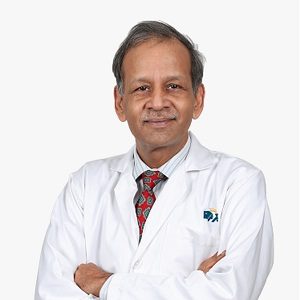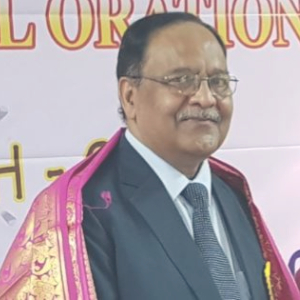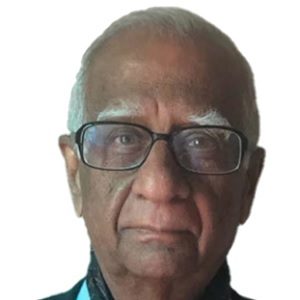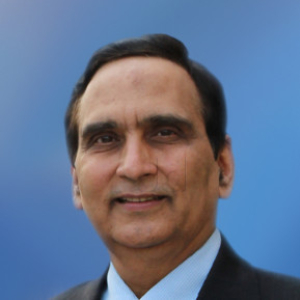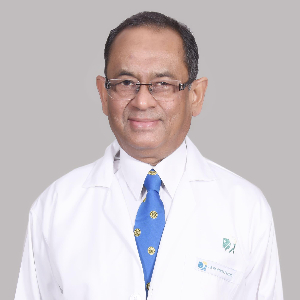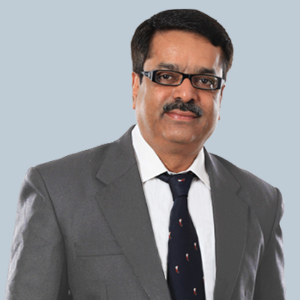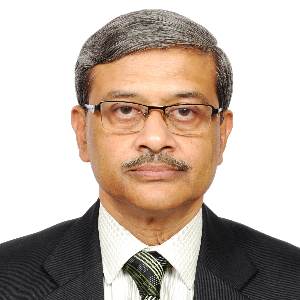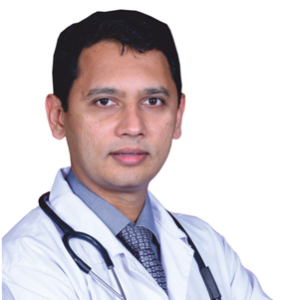Best Stereotactic Radiosurgery Doctors in india
- Radiation Oncologist, Chennai, India
- Over 24 years’ experience
- Apollo Cancer Centre
Profile Highlights:
- Dr. Rathna Devi is a senior Radiation Oncologist who has an experience of 24 years in the field.
- She completed MBBS from M.S. Ramaiah Medical College, Bangalore University, and a Diploma in Radio Treatment from Madras Medical College, Dr. MGR Medical University.
- Dr. Rathna Devi’s areas of expertise include Cranial Cyberknife Radiosurgery, Intensity Modulated Radio Treatment (IMRT), and Stereotactic Body Radio Treatment (SBRT).
- Top Neurosurgeon | Apollo Hospital, New Delhi, India
- 27+ Years Experience
- Indraprastha Apollo Hospital, New Delhi
Profile Highlights:
- Dr. Pranav Kumar is one of the best Neurosurgeons in India, having a good success record of over 27 years in performing deep-rooted tumors in the skull.
- Since 1996, Dr. Kumar has been working as a senior consultant neurosurgeon at Apollo Hospital, New Delhi.
- Dr. Pranav Kumar is skilled in surgeries for brain tumors deep-seated at the base of the skull and aneurysms affecting the cerebrovascular system.
- Dr. Kumar specializes in performing the complex ‘Auditory Brainstem Implant,’ where a Bionic device is inserted in the brainstem to recover the hearing capacity in deaf patients who cannot be treated with a cochlear implant.
- He completed microsurgery training at the National Neurosurgical Centre at Beaumont Hospital in Ireland.
- Radiation Oncologist, Chennai, India
- Over 10 years’ experience
- Apollo Proton Cancer Centre
Profile Highlights:
- Dr. Ashwathy Susan Mathew has been an eminent doctor hailing from the Department of Radiation Oncology Apollo Proton Cancer Centre, Chennai.
- She has performed extensive research in the diagnosis and treatment of Gastro-Intestinal Cancers and related metastasis.
- She has been awarded the Parvati Devi Gold Medal for Best Paper at the 34th Annual Conference of the Association of Radiation Oncologists of India.
- Top Neurosurgeon | Max Hospital, Saket, New Delhi, India
- 45+ Years Experience
- Max Super Specialty Hospital, Saket, New Delhi
Profile Highlights:
- Dr. V K Jain is a leading neurosurgeon in India with refined medical surgical precision.
- Dr. Jain has worked in a variety of significant positions in hospitals all across the world over the course of his career.
- Dr. Jain has also served as a visiting professor at a number of prestigious hospitals throughout the world.
- He has also attended many conferences, workshops, and seminars and has also been invited as faculty to many conventions both in India and abroad.
- Top Neurosurgeon | Apollo Hospital, New Delhi, India
- 60+ Years Experience
- Indraprastha Apollo Hospital, New Delhi
Profile Highlights:
- Dr. Ravi Bhatia is a veteran neurosurgeon and spine surgeon at Indraprastha Apollo Hospital New Delhi.
- He has about six decades of experience in the management and surgeries of neurological disorders. Before retiring, Dr. Bhatia worked at another prestigious Indian hospital, AIIMS, New Delhi.
- He is particularly interested in Neuro-Oncology, Brain and Spine Tumors, Cerebrovascular Surgery, and Craino vertebral abnormalities.
- To date, Dr. Bhatia has treated neuro patients with a great success rate.
- He authored chapters in many textbooks and has around 95 papers for medical journals to his credit.
- Top Neurosurgeon | Apollo Hospitals, New Delhi, India
- 35+ Years Experience
- Indraprastha Apollo Hospital, New Delhi
Profile Highlights:
- Dr. S.K. Sogani is a highly respected Neurosurgeon with over 35 years of experience, currently affiliated with Apollo Hospitals Indraprastha in New Delhi.
- Holding an MBBS, MS, and MCh, Dr. Sogani is renowned for his expertise in treating complex neurosurgical conditions such as craniosynostosis, epilepsy, multiple sclerosis, and Moyamoya disease.
- His surgical prowess extends to intricate procedures like craniotomies, spinal fusions, and pediatric neurosurgeries, with over 5,000 successful cases to his credit.
- Top Neurosurgeon & Spine Surgeon | Apollo Hospital, New Delhi, India
- 30+ Years Experience
- Indraprastha Apollo Hospital, New Delhi
Profile Highlights:
- Dr. Rajendra Prasad is one of the most experienced Neurosurgeons and Spine surgeons in India.
- Dr. Rajendra Prasad is an expert in all neuro and spine surgeries that including micro neurosurgery, minimally invasive spine surgery, surgery for degenerative spine diseases, surgery for brain and spine trauma, and neuro tumor surgeries.
- Neurosurgeon, Mumbai, India
- Over 25 years’ experience
- Fortis Hiranandani Hospital Vashi Mumbai
Profile Highlights:
- Dr. Ashok Hande is a renowned neurosurgeon in Mumbai who holds the credit for 300 AVMs, 1400 skull base tumor surgeries, 3600 surgeries for cranial and spinal trauma, 1200 lumbar prolapsed intervertebral disc surgeries, 800 cerebral aneurysms, and more than 100 microvascular decompressions.
- He holds an experience encompassing 25+ years and holds the credit for pioneering neurosurgery in Mumbai by bringing in new and advanced neurosurgical procedures for brain and spine surgery.
- Neurosurgeon, Mumbai, India
- Over 28 years’ experience
- Fortis Hiranandani Hospital Vashi Mumbai
Profile Highlights:
- Dr. Deepu Banerji is a leading name in the field of Neurosurgery in India and possesses extensive skills in minimally invasive and micro neurosurgery.
- He has been practicing neurosurgery for over 28 years and is counted among the best microscopic neurosurgeons in the country.
- Apart from minimally invasive surgeries, his expertise lies in skull base surgery, brain tumors surgery, vascular surgery, and spine surgeries, and has handled numerous cases of brain and spine diseases and disorders.
- Neurosurgeon, Bengaluru, India
- Over 22 years’ experience
- Gleneagles Global Hospital Bengaluru
Profile Highlights:
- Dr. Madhusudan H V is an expert Neurosurgeon in South India with 22+ years of experience in neuro and spine surgery.
- With a specialization in minimally invasive neurosurgeries, Dr. Madhusudan holds the credit for more than 7000 neurosurgeries. He also finds interest in endoscopic interventions and frameless navigations.
Best Stereotactic Radiosurgery Hospitals in India
Hospital Highlights:
- Apollo Hospitals is a private healthcare group in India, with its headquarters based in Chennai. Established in 1983 by Dr. Prathap C. Reddy, the group offers a wide range of medical treatments and services across various specialties.
- It is renowned for emphasizing innovation and utilizing cutting-edge medical technologies into patient treatment.
- Known as India’s first corporate hospital, Apollo Hospitals is often credited for pioneering the private healthcare revolution in the country.
- With clinics and hospitals located all throughout India, Apollo Hospitals is a nationwide healthcare organization. Its presence can also be found in foreign countries.
- Preventive health examinations, medical and surgical treatment, and diagnostic centres are just a few of the services that the Apollo group provides.
- The group has several centres of expertise, including Cardiac Sciences, Neurosciences, Orthopedics, Emergency Care, Cancer Care, and Organ Transplantation.
- City: Chennai, India
Hospital Highlights:
- RIMC is a multi-specialty hospital in a sprawling area of 36 acres located in Chromepet, Chennai, Tamil Nadu, India.
- The facility has 450 beds including 130 critical care beds, 9 operating rooms, modern reference laboratories and radiology services, and is conveniently located near road, rail and air transportation.
- RIMC is led and managed by world-renowned physicians committed to healthcare.
- RIMC offers the broadest range of clinical care, education, and research. The hospital offers state-of-the-art technology and modern treatment facilities designed to provide health care at an affordable cost.
- Rela Institute is driven by patient needs, comfort and confidence.
- City: New Delhi, India
Hospital Highlights:
- Fortis Hospital in Shalimar Bagh is a multi-super specialty hospital that strives to provide world-class patient care by leaving no stone unturned.
- Fortis, Shalimar Bagh, with 262 beds and a 7.34-acre footprint, provides the best level of medical care through its team of doctors, nurses, technicians, and management professionals.
- City: Bengaluru, India
Hospital Highlights:
- Established in 2007, the Apollo Hospitals Bangalore is a 300-bed multispecialty hospital situated in Bannerghatta Road, Bangalore.
- Equipped with the state-of-the-art technology, it is a leading hospital dedicated to providing healthcare needs to patients with compassion and expertise.
- It is the first hospital to have completed the highest number of Robot Assisted Heart Surgeries in India.
- Over the years, it has successfully conducted some of the rarest medical procedures such as spinal angiolipoma excision, autologous chondrocyte implantations, and tibial tuberosity shift with MPSL reconstruction.
- The Apollo Hospitals Bangalore has the reputation of performing the greatest series of airway stents in the country.
- Additionally, the hospital is known for providing comprehensive treatment in specialties such as gastroenterology, urology, gynecology, oncology, colorectal surgery, etc.
- The “The Minimal Access Surgery Centre” (MASC), one of Apollo Hospitals, Bangalore’s premier Centres of Excellence, is devoted to the use of minimally invasive surgical procedures.
- In 2013, THE WEEK-A C Nielsen, Best Hospital Survey ranked Apollo Hospitals Bangalore as the 2nd best multi-speciality hospital in Bangalore.
- City: Mumbai, India
Hospital Highlights:
- Gleneagles Global Hospital The 450-bed facility comprises of 17-stories, housing state-of-the-art infrastructure, and advanced medical care facilities.
- The hospital offers end-to-end clinical, surgical, and diagnostic services. It is equipped with a team of eminent medical professionals aided by qualified nurses and medical staff
- The Hospital offers advanced Endoscopic procedures, Hepatobiliary and Liver Surgeries, Surgical and Medical Gastroenterology, Bariatric Surgery, and Robotic surgery.
- The hospital is a center of excellence for Orthopedics, Joint Replacement, Knee Replacement, and Hip Replacement surgery.
- City: Hyderabad, India
Hospital Highlights:
- CARE Hospitals were established in the year 2000, by CARE Group.
- The multispecialty hospital has 435 beds, including 120 critical care beds, with an annual inflow of 180000 outpatients and 16,000 in-patients.
- The hospital provides specialty medical services in Cardiology, Cardiothoracic Surgery, Pediatric Cardiology, Pediatric Cardiothoracic Surgery, Neurology, Neurosurgery, Nephrology, and Urology.
- The hospital has the first dual source, 128 slice CT scanner (for high precision cardiac imaging) – the first of its kind in south India.
- The hospital offers a wide range of accommodation facilities for the convenience of its varied patient base, ranging from general wards to super deluxe rooms.
- City: Mumbai, India
Hospital Highlights:
- Fortis Hospital in Mulund is a 315-bed multi-speciality tertiary care hospital with five JCI accreditations that offers a wide variety of diagnostic and treatment services. The Fortis Hospital in Mulund delivers patient-centred treatment with cutting-edge technology, highly skilled and experienced surgeons, and paramedical staff.
- This institution houses Maharashtra’s largest multi-organ transplant centre. It is also the first heart transplant centre in western India to conduct 100 or more consecutive heart transplants in under four years. It is the only hospital in the city to have multi-organ transplants and has handled the youngest patient for angioplasty. Fortis Hospital Mulund now boasts the first advanced surgical robot in central Mumbai.
- Cardiology and heart surgery, urology, nephrology, neurosciences, orthopaedics, digestive care, emergency and critical care, and maternity care are among the services provided by the hospital.
- City: New Delhi, India
Hospital Highlights:
- Manipal Hospitals, Dwarka, is a super-specialty hospital in Dwarka, New Delhi, which is a part of Manipal Hospitals Group.
- The hospital aims to provide the best treatment on par with international standards at a fraction of the cost.
- Equipped with 380 beds, the hospital is also one of the new age hospitals which are equipped fully with state-of-the-art infrastructure, cutting-edge technology as well as the latest and advanced clinical practices. The hospital also has 13 modular Operation theatres with 118 beds which are solely meant for critical care.
- The hospital comprises internationally acclaimed doctors and highly professional and experienced hospital and medical staff who are able to provide preventive, therapeutic, and diagnostic services all under one roof.
- City: Chennai, India
Hospital Highlights:
- Located in Chennai, India, MGM Healthcare is a top multispecialty hospital that provides all medical services under one roof.
- Since its founding in 2019, MGM Healthcare has quickly become a leading national referral centre, creating several innovative flagship initiatives.
- MGM Healthcare combines next-generation medical and digital technologies to provide better patient results.
- With 12 centres of excellence, more than 400 inpatient beds, 100 intensive care unit beds, and 24/7 emergency care, MGM Healthcare leaves no chance in redefining the patient experience in Chennai.
- MGM Healthcare boasts 250+ expert doctors across 30+ departments, including Cardiology, Pulmonology, Neurology, Obstetrics & Gynaecology, and more.
- They house 12 specialized Centres of Excellence, including Neurosciences, Orthopaedics, and Multi-Organ Transplantation.
- Their team of doctors, nurses, and paramedics works together to give every patient individualized treatment.
Hospital Highlights:
- Lilavati Hospital & Research Centre is India’s premier multi-speciality tertiary care hospital and has been recognised as a global medical excellence centre.
- Lilavati Hospital & Research Centre has built an unrivalled level of trust with its patients over the years, thanks to a solid foundation that comprises cutting-edge facilities, the best medical competence, research, education, and charity endeavours.
- The hospital is quite proud of the fact that it now serves patients from all kinds of backgrounds, not just from the United States but from all around the world.
- The hospital has a total of 323 beds, one of the largest Intensive Care Units (ICUs), 12 Operation Theatres with modern amenities, over 300 consultants, and almost 1,800 personnel.
Stereotactic Radiosurgery
When doctors are unable to treat a disease with surgery due to the location of the problem or the health of the person who needs the treatment, then they might consider stereotactic radiosurgery (SRS) to address some of these problems.
Stereotactic radiosurgery is a form of radiation treatment that makes the use of focused delivery of radiation in high doses to precise locations in your body. It can be used to treat certain kinds of tumors and other abnormalities in the spine, brain, neck, lungs, or liver.
The technique was developed in the 1950s by Swedish neurosurgeons to treat small tumors located deep in the brain without causing damage to the nearby healthy tissues. Doctors now use this technique to treat any part of the body where tumors are hard to reach or are close to any vital organs.
Purpose
Though stereotactic radiosurgery was initially developed to treat small, deep brain tumors, now it is used for a wider array of problems in the brain as well as other parts of the body. Doctors now use this method for treating areas in the brain or anywhere else that are hard to reach or close to vital organs or they also use it to treat tumors that have moved within the body. Various problems can be addressed with Stereotactic radiosurgery, some of them including:
- Deep brain tumors
- Pituitary tumors
- Cancers of the eye
- Residual tumor cells after surgery
- Neurological problems, such as trigeminal neuralgia
- Arteriovenous malformations, which are tangled blood vessels leaking and disrupting your normal flow
- Parkinson’s disease
- Epilepsy
- Tumors in the liver, lung, spine, prostate, abdomen, head, and neck
Generally, doctors prefer stereotactic for treating older adults or people who are too sick to undergo conventional surgery. Sometimes, after some undergo surgery for removing a cancerous tumor, a doctor can use stereotactic radiosurgery to kill any remaining tumor cells that the surgeon might have missed.
Preparation
You will generally have one or more imaging scans, such as a CT scan or an MRI, before your treatment. Your doctor might inject a contrast agent as it can help them understand the size and location of the tumor or any other structure that they will need to treat. A lot of planning will go into structuring your treatment as well.
Let your doctor know about any medications you are taking or any implants or devices that you have such as:
- A pacemaker
- An artificial heart valve
- Stents
- Implanted pumps
Remember not to eat after midnight on the day of the procedure. Also make sure that you remove items such as eyeglasses, contact lenses, or dentures before the treatment.
Procedure
The procedure can be of various types depending on your condition.
Gamma knife radiosurgery involves aiming nearly 200 beams of highly focused gamma radiation at the target region, such as a tumor. This is used for small- to medium-sized brain or head and neck abnormalities as well as functional brain disorders such as essential tremor.
Linear accelerator machines can involve the use of high energy X-rays to target large tumors by delivering radiation over several treatments. This is sometimes termed as CyberKnife technology.
Proton beam or heavy-charged-particle radiosurgery is used by the doctor for treating smaller tumors throughout the body.
All these methods require a lot of imaging with CT scan, MRI, or maybe other methods, so that your doctor will know where exactly the tumor is, as well as its size.
The professionals in your surgery team can include:
- a radiation oncologist
- a dosimetrist
- a radiologist
- a medical radiation physicist
- a radiation therapist
- a radiation therapy nurse
It is important for you to stay completely still for these methods to work. This will help to ensure that your doctor is able to target the radiation to the affected tissues and that the treatment doesn’t affect as much of your normal tissue. Your doctor might also place strips on you so that you are immobile, or they might place a special facemask or a frame that attaches to your scalp to keep you from moving during the treatment.
You will lie down on a table which will be sliding into a machine. This machine might spin around you to change the angles of the radiation beams. Throughout the procedure, your healthcare team will be able to watch you on a camera. You will be able to speak to them through a microphone if you experience any problems.
Generally, the treatment takes around 30 minutes to one hour. Though your problems should be addressed in a single session, in a few cases, additional treatments can be required.
After the procedure
You should be able to eat and drink after the procedure is complete. You might experience minor bleeding or tenderness at the pin sites. If you experience any headache, nausea, or vomiting after the procedures, you will receive appropriate medications.
It generally takes weeks or sometimes even months for the targeted cells to stop reproducing and die off. Your doctor will continue to check the size of the tumor and the treated area using CT scans and MRI.
Risks
Since stereotactic radiosurgery doesn’t involve surgical incisions, it is generally less risky as compared to traditional surgery.
Some of the early complications or side effects that might occur after the surgery include fatigue, swelling in scalp and hair problems.
In some cases, people might also experience late side effects, such as any kind of neurological problem. This can happen several months after the treatment.


